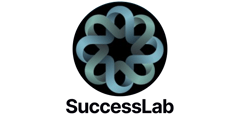The rapid advancement of artificial intelligence (AI) has stirred anxiety among employees regarding the potential impact on their jobs and identities. However, understanding AI and embracing its potential can alleviate these concerns. By demystifying AI, recognizing its limitations, and seizing new opportunities, workers can confidently navigate the evolving job landscape and embrace a future where humans and AI collaborate harmoniously.
AI Knowledge as Empowerment
The fear of the unknown often lies at the heart of AI anxiety. As AI technology continues to evolve at an unprecedented pace, it's natural for individuals to feel overwhelmed and uncertain about the future. However, research indicates that individuals who actively seek to learn more about AI and develop skills related to its implementation tend to experience less anxiety. By demystifying AI through education and familiarizing themselves with its capabilities, workers can better understand its potential impact and the need for human oversight.
Example: Consider Sally, a customer support engineer. With the introduction of AI-powered chatbots, Sally initially feared job displacement. However, Sally transformed her fear into empowerment by learning about chatbot capabilities and understanding their role as a support tool. She embraced training to collaborate effectively with chatbots, focusing on tasks requiring empathy and complex problem-solving, enhancing her job performance and security.
Moving Towards Meaningful Work
While AI may automate certain tasks, it also creates opportunities for workers to shift their focus toward more essential and meaningful work. As AI algorithms become increasingly proficient in handling repetitive or mundane tasks, humans can redirect their efforts toward tasks that require creativity, critical thinking, and emotional intelligence—skills that machines struggle to replicate. By harnessing their unique expertise and embracing the changing landscape, employees can position themselves for roles that offer greater job satisfaction and fulfillment.
Example: Consider Frank, a factory worker who witnessed the integration of AI-driven automation. Rather than fearing obsolescence, Frank proactively developed expertise in overseeing and optimizing AI systems. By leveraging his experience and problem-solving abilities, Frank transitioned into a supervisor role, ensuring AI systems complemented human decision-making and increased productivity and worker satisfaction.
Lessons from the Past
It's important to recognize that fears surrounding automation and technological advancements are not new. Throughout history, humans have faced similar concerns during pivotal moments of industrialization. However, time has repeatedly shown that while automation may transform job roles, it rarely eliminates the need for human involvement entirely. The past serves as a reminder that humans possess inherent qualities and abilities that make them indispensable in the workforce. By studying the lessons of the past, we can gain confidence in our ability to adapt and thrive in an AI-driven world.
Example: Consider the banking industry's introduction of ATMs. Initially, tellers feared losing their jobs, but automation increased demand for their expertise in customer service and complex transactions. This historical perspective reassures workers that AI's impact will likely enhance rather than eliminate their roles.
Embracing an AI-Enabled Future
The rise of AI in the workplace may provoke anxiety, but it also presents an opportunity for growth and evolution. By dispelling the mysteries surrounding AI, understanding its limitations, and leveraging our unique human qualities, we can navigate this transformative period with confidence. As AI assumes more routine tasks, employees can embrace more meaningful and fulfilling work that showcases their distinctive skills. Rather than succumbing to fear, let us seize the potential of AI as a catalyst for positive change and collectively shape a future where humans and machines collaborate to unlock new frontiers of innovation and productivity.
Example: Manuel, a marketing professional, faced concerns about AI replacing certain tasks. He recognized the opportunity to upskill in data analysis and AI-driven marketing strategies. By embracing AI to streamline data processing, Manuel enhanced his decision-making abilities, developed innovative campaigns, and positioned himself as an indispensable asset to his organization.
Workers need not succumb to anxiety amid the rise of AI. Individuals can thrive in a transformed job landscape by gaining knowledge about AI, embracing their unique human skills, and seeking growth opportunities. Real-life examples such as Sally, Frank, Manuel, and lessons from history demonstrate that AI often enhances human capabilities and creates new avenues for professional development. Embracing AI as a collaborative partner, we can confidently navigate the future of work, forging a path where human potential and AI-driven innovation coexist harmoniously.
Please use the comments box below to share your experiences and insights, and views. Also, remember to sign up for the CCO Perspectives weekly newsletter. 


